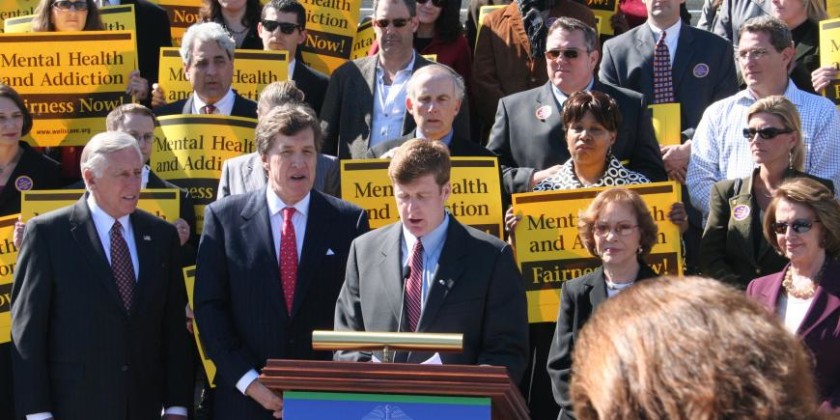Today, nearly 25 percent of Americans are affected by mental illness and addiction. Former Rhode Island U.S. Representative, Patrick J. Kennedy is one of them.
In May of 2006, the world came crashing down on this US representative who was not only a member of one of the most famous political families in our country’s history but also an advocate for those affected by mental illness and addiction. Medicated on prescribed pills for bi-polar disorder, as well as sleep medications, Kennedy got behind the wheel of his car and crashed into a security barrier on Capitol Hill.
Many Kennedy family members have been known for being secretive, but Mr. Patrick J. Kennedy is not one of them. According to Kennedy’s 2015 book, “The Common Struggle”, he feels that this unfortunate experience was an emotional platform to tell his story and inform the public of the struggle that he and millions of Americans have with mental illness and addiction. Kennedy promised himself that he would “have the most transparent recovery and treatment ever,” by allowing his experiences and treatment to be shared with the public. He strongly believes that using his personal story would go hand in hand with his ongoing legislative fight for mental health parity; an effort to outlaw the rampant discrimination in medical insurance coverage for mental illness and addiction treatment.” In 2013, the Kennedy Forum was created to focus on mental and behavioral health. Through education, they are looking to “promote the understanding and acceptance to overcome stigma and discrimination and dissolve the barriers to widespread treatment of mental health and substance use disorders.” This will hopefully help millions of people feel comfortable to open up about their struggles.
In an interview with Kaiser Health News, a nonprofit news service committed to coverage of health care policy and politics, Kennedy stated, “today we are reacting to an epidemic of untreated mental illness. So the way to deal with that is to build a chronic care or intensive care system so that people are treated and cared for, and not abandoned. That goes back to the first point: we know these are chronic illnesses, yet we don’t employ a chronic care approach to their treatment. Treat it like asthma, treat it like diabetes; treat it in a chronic care management way.”
In 1996, The Mental Health Parity and Addiction Act (MHPAEA) became an achievement of Patrick Kennedy’s 16 years of hard work in Congress. MHPAEA states that “large group health plans cannot impose annual or lifetime dollar limits onmental health benefits that are less favorable than any such limits imposed on medical/surgical benefits.” This act was put into place to preserve mental health protection and add new protection to all different types of mental disorders and addiction. According to The Kennedy Forum, the act requires health insurance carriers to ensure coverage parity between mental health/substance use disorders (MH/SUD) and medical/surgical benefits, especially in regard to financial requirements and treatment limitations.” Because of this act, most health plans now cover preventative services like depression screenings and assessments. Individuals who suffer from mental illness are at high risk for suicide. More than 41,000 people take their own lives, but by knowing the warning signs and taking preemptive precautions, better healthcare can decrease suicide rates enormously.
Although the MHPAEA has brought mental health equality a long way, the struggle is not over for this civil rights issue. Questions still need to be answered on how parity is properly put into action. Will health plans and insurers follow the law and pay for behavioral health services equal to those routinely covered for other conditions? And how will the government monitor and enforce this law? “We hope to change public perceptions so that Americans see the availability and provision of quality mental health services as a community responsibility and an enhancement of community life that is both desirable and attainable.” It is time to revolutionize health care, in order to provide the care that all Americans deserve.
#MentalHealthParity #MentalHealthAwareness #MentalHealth #ChronicIllness #MHPAEA #PatrickJKennedy



